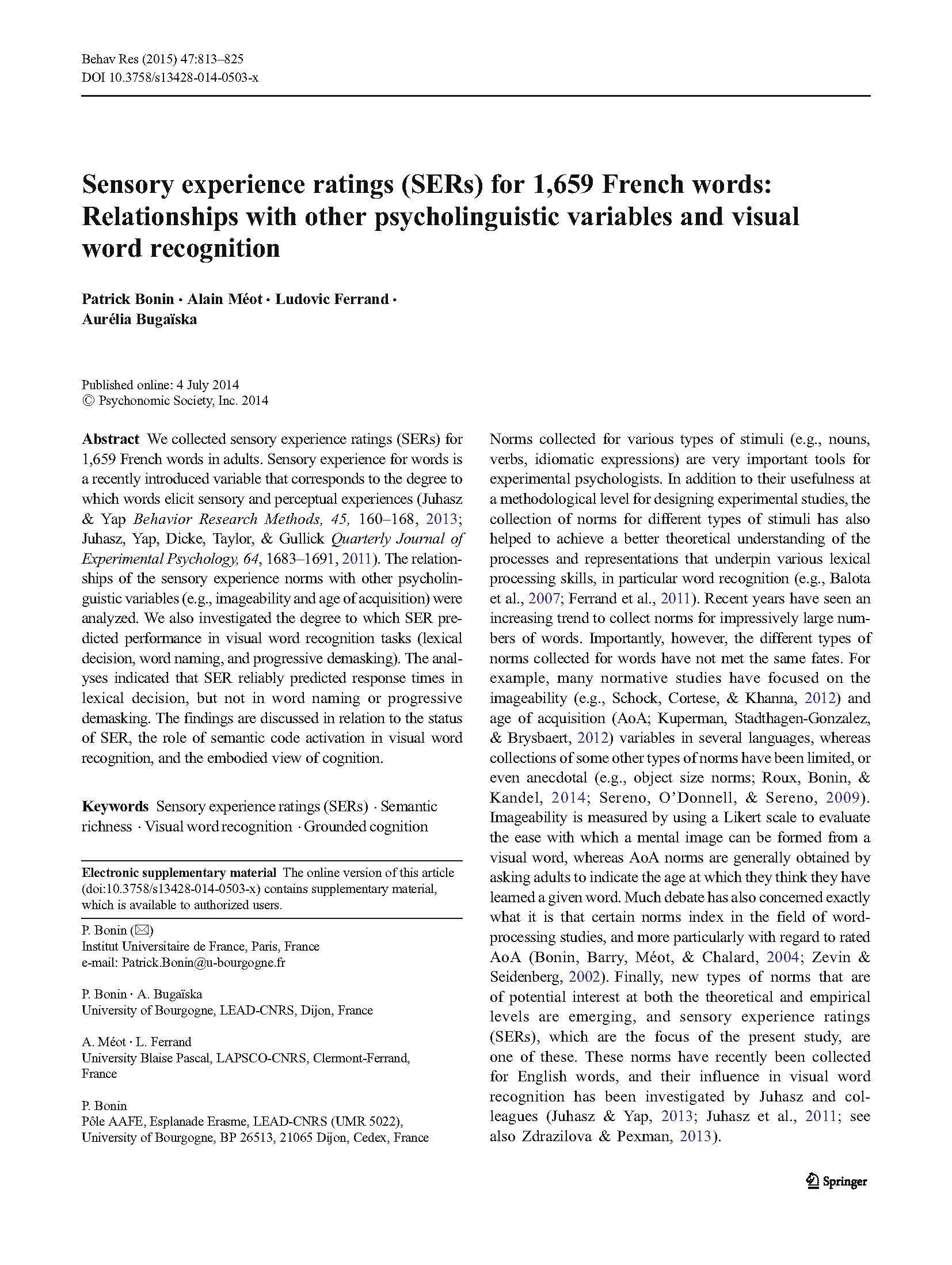We collected sensory experience ratings (SERs) for 1,659 French words in adults. Sensory experience for words is a recently introduced variable that corresponds to the degree to which words elicit sensory and perceptual experiences (Juhasz & Yap Behavior Research Methods, 45, 160–168, 2013; Juhasz, Yap, Dicke, Taylor, & Gullick Quarterly Journal of Experimental Psychology, 64, 1683–1691, 2011). The relationships of the sensory experience norms with other psycholinguistic variables (e.g., imageability and age of acquisition) were analyzed. We also investigated the degree to which SER predicted performance in visual word recognition tasks (lexical decision, word naming, and progressive demasking). The analyses indicated that SER reliably predicted response times in lexical decision, but not in word naming or progressive demasking. The findings are discussed in relation to the status of SER, the role of semantic code activation in visual word recognition, and the embodied view of cognition.
Sensory experience ratings (SERs) for 1,659 French words: Relationships with other psycholinguistic variables and visual word recognition
